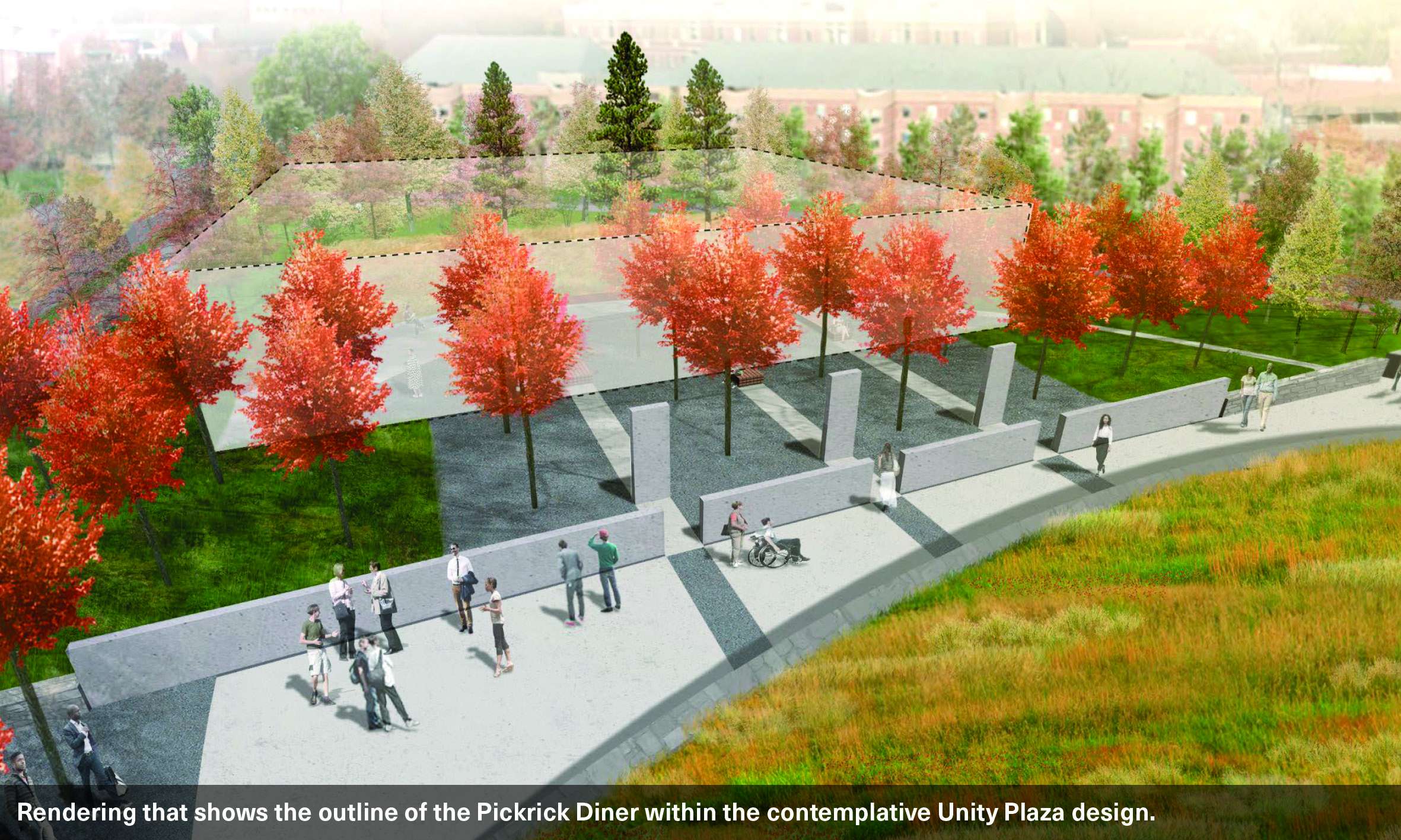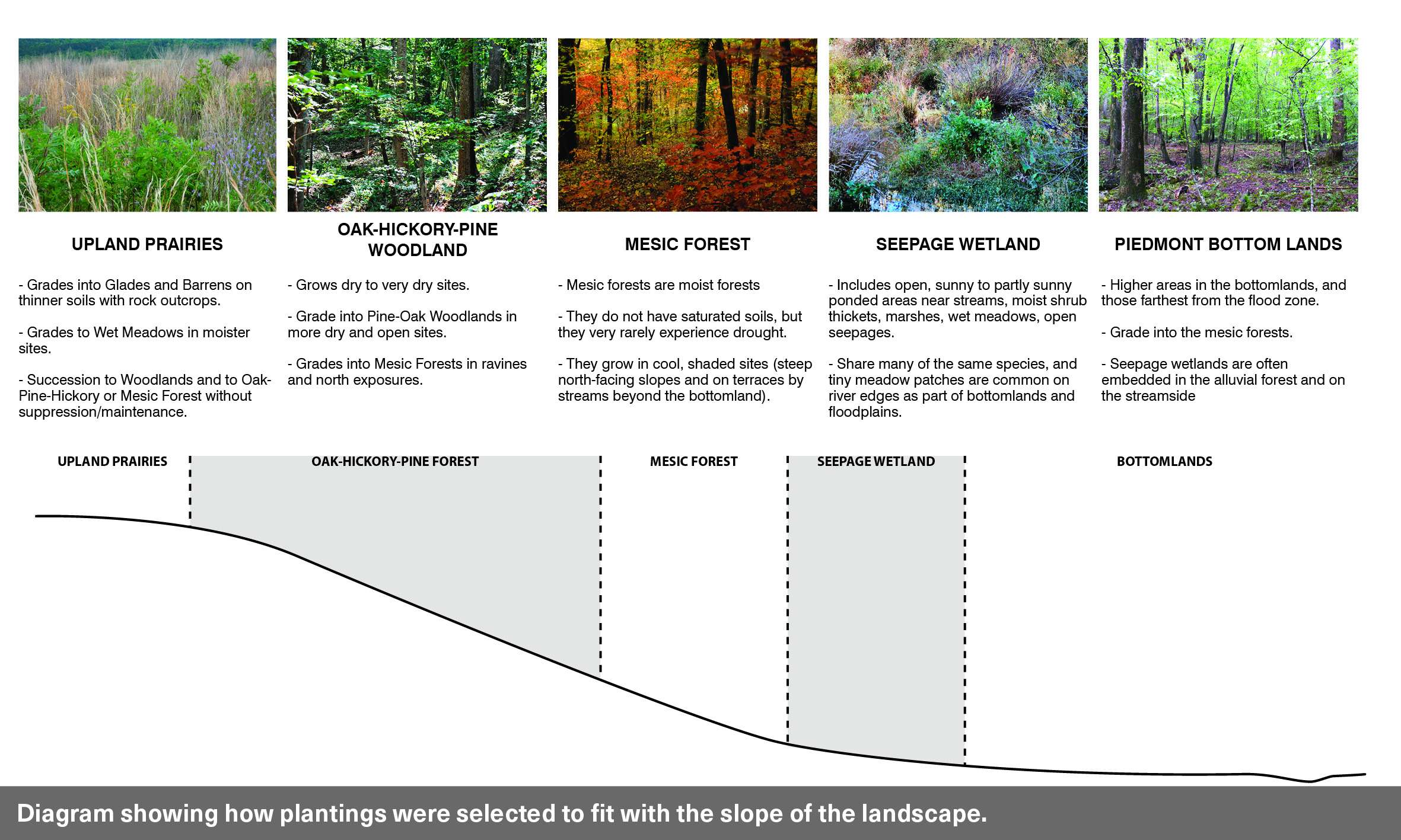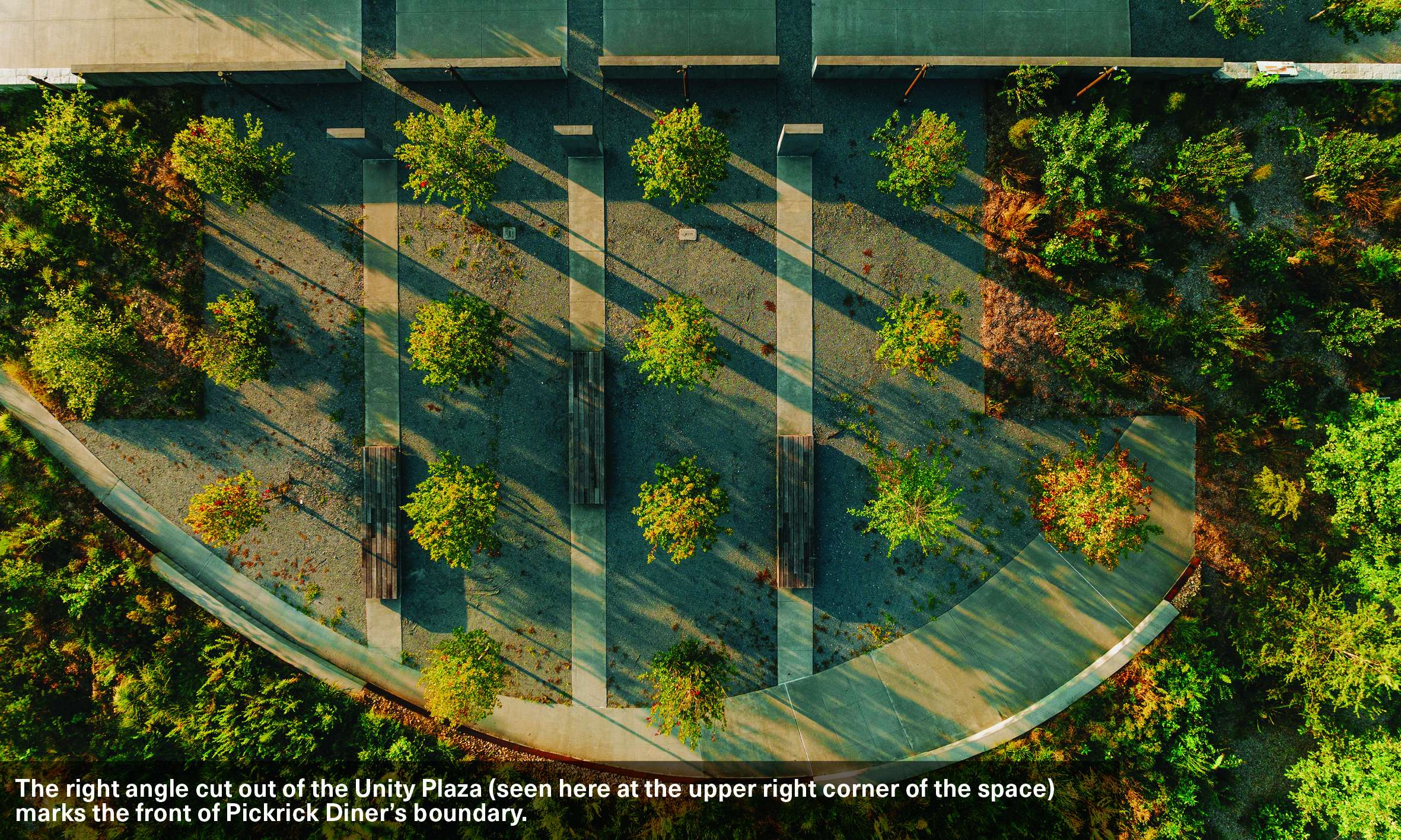















EcoCommons_rosa_barba
EcoCommons at the Georgia Institute of Technology
EcoCommons at the Georgia Institute of Technology
At the heart the Georgia Institute of Technology in Atlanta, a 3.6-hectare expanse of asphalt covered more than just soil. The pavement for decades covered a buried urban stream and contributed to floods and urban heat. And as the team researched a design proposal for the EcoCommons, a multi-use space transforming asphalt into a biodiverse sanctuary, archival property records revealed that the asphalt covered the footprint of a building, unidentified and long demolished, that had been one of the most important sites of Civil Rights activism in the United States in the 1960s: the Pickrick Diner.
On July 3, 1964, one day after President Lyndon B. Johnson signed the landmark federal Civil Rights Act, which outlawed segregation of black and white citizens in public establishments, George Willis Jr., Albert Lee Dunn, and Woodrow T. Lewis, all local Black seminary students, asked to be seated in the Pickrick, which was owned by Lester Maddox, an avowed segregationist. Maddox and a mob pulled guns on the students, who then left peaceably. The incident swiftly became part of the first federal complaint under the new law before the Supreme Court, which upheld the law in a pivotal early affirmation of its constitutionality. (Maddox, found in contempt of a court's direct order to obey the law, closed the restaurant the following year; the building was demolished in 2009.)
With this discovery, the landscape architect altered the design to incorporate a commemorative site, Unity Plaza, atop the diner site. The plaza honors the courage of Willis, Dunn, and Lewis; in form and narrative, its elements relate their experience of racial injustice and offer a place to reflect on their determination to be regarded as full members of society. The plaza situates compatibly into the larger project of recuperating the hardened site as a naturalistic Piedmont woodland and prairie where students can thrive and grasp the strength in confronting past human error with honest reckoning and redress.
